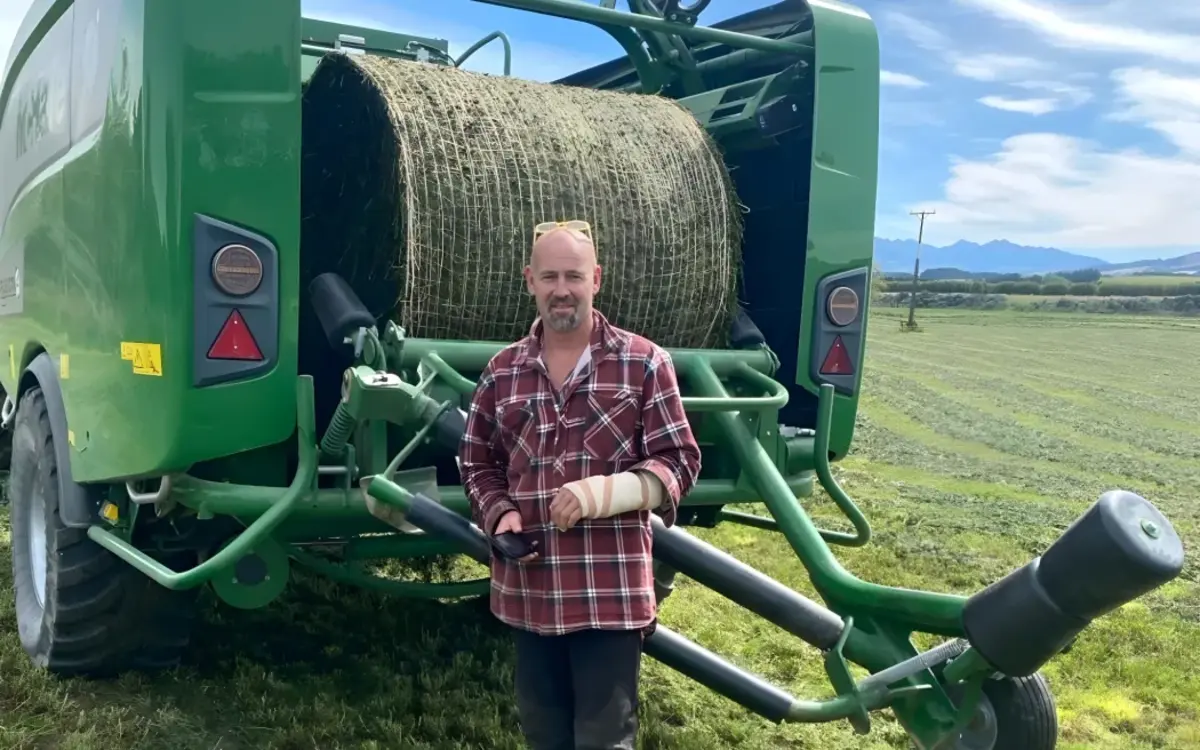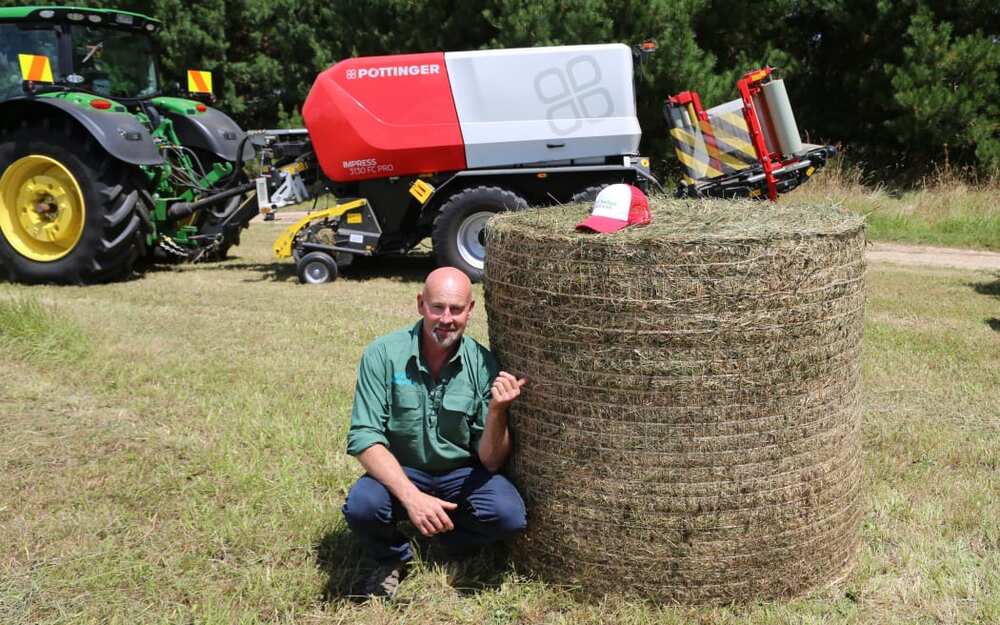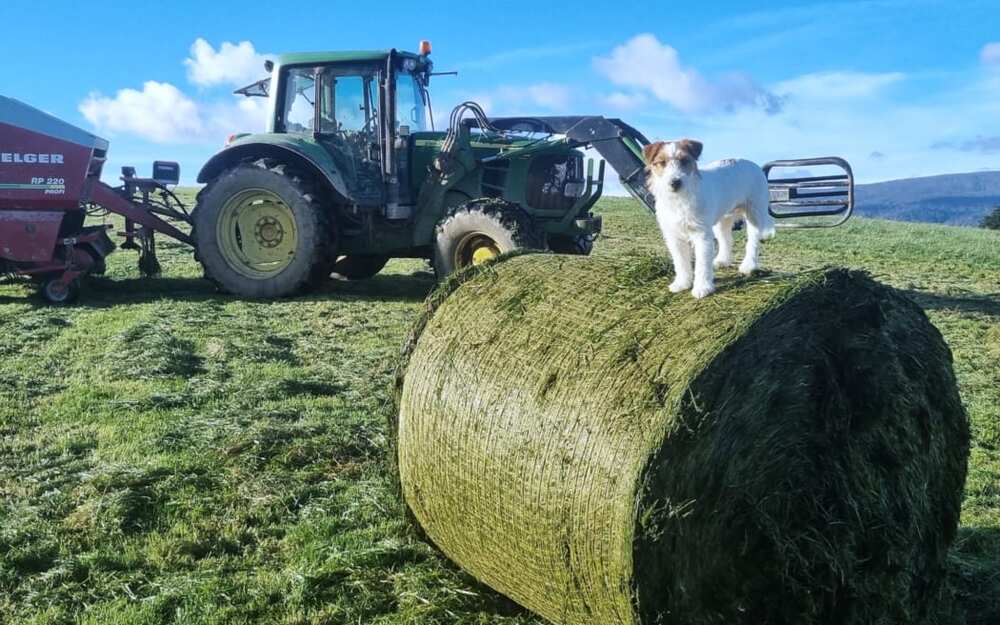Edible bale netting - 'No one else is doing it. Just little old Grant from Orepuki'
Reporting by RNZ
02 March 2025, 7:57 AM
 The jute rolls work 'out of the box' in most balers Photo: Grant Lightfoot/Supplied
The jute rolls work 'out of the box' in most balers Photo: Grant Lightfoot/SuppliedThe Orepuki deer farmer, who invented a non-polluting baleage wrap that animals can eat, has just received his first shipment of plant fibre bale netting from India.
Baleage is a way of storing forage to preserve it as livestock feed. The big round bales are normally fed out to dairy cows, beef cattle, sheep and deer over winter.
Up until now, the wrap that holds the feed bales together has been made out of plastic.
"You can't recycle it, you can't do anything with it. Some farmers bury it, some burn it. It's a serious problem," Lightfoot told Country Life.
Cows have also been known to eat discarded plastic bale netting.
"I've got vet photos of plastic that there's some of the balls inside the cow's guts. They can't digest it so they end up dying."
"Mine is made out of jute yarn, like a flax fibre and any animal can eat it," he said.
The born and bred Southlander came up with the idea while working as a commercial diver on an oil rig.
"The deepest I've been is 865 feet underwater and I've lived at that depth for 28 days."
While in the decompression chamber he often thought about the farm back home and one day the lightbulb moment happened for the Econet bale wrap.

The inventor with a bale wrapped in his netting Photo: Grant Lightfoot/Supplied
.
Initially it was going to be made out of hemp fibre, but legal restrictions in the United States, relating to THC (Tetrahydrocannabinol - a psychoactive substance found in hemp at low levels), prevents the use of hemp and its byproducts in livestock feed.
"So for me, if I ever wanted to export to America, it was a no-no. So then I came up with jute fibre."
"It's like a bamboo plant," Lightfoot explained. "They grow it in fields then they cut it off and soak it, then they beat it and then the bark on the outside is the jute."
He and his partner Colleen Quirk hand-knitted the first 50m of the 1.25m wide netting out of jute twine. It took weeks at a rate of about a metre per night.
"Then we put it in the baler and it held together. It went through like piece of cake and I thought, wow, we're onto something here and the old goose bumps started."
The prototype bale net won the open section in the Southern Rural Life Farm Innovation Awards last year.
Only days after winning the award Lightfoot got a call from the US. Someone was very interested in his environmental and animal friendly product.
"Now we're business partners. Jackie, he's an Indian living in America and the other guy is Russ, an ex-Kiwi living in Oklahoma. And with Jackie being Indian, it's been helpful for where I get it made."
They had more samples made in India so the wrap could be tested with other balers. It worked without a hitch.

Grant's dog stand proudly on baleage freshly wrapped in the Econet Photo: Grant Lightfoot/Supplied
The same manufacturer, who is based in Kolkata, has now moved into commercial production.
"I've been there quite a few times. One of the factories there has over 10,000 people working in it, it's amazing."
The rolls of baler netting being made are either 525m or 775m long and slot directly into a baler. The first two shipping containers, filled with hundreds of rolls, have just arrived in New Zealand.
It will cost just under $4 to wrap a bale of baleage in Lightfoot's Econet alternative. He said this compared to about $2.40 for plastic wrapping.
Despite the extra cost, he said he's already got farmers and contractors knocking on his door.
"I've got a book there full of orders already," Lightfoot told Country Life.
In May, the entrepreneur is heading to the United States and Europe to further promote his product.
In terms of global sales he thinks the potential is huge.
"Because no one else is doing it. No one else in the world. Just little old Grant from Orepuki."
Published by permission